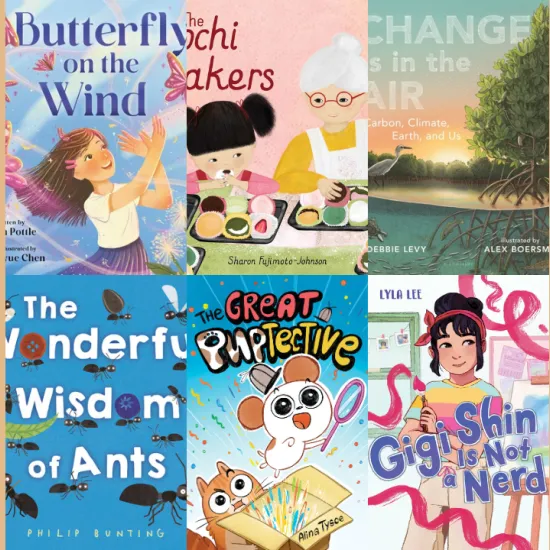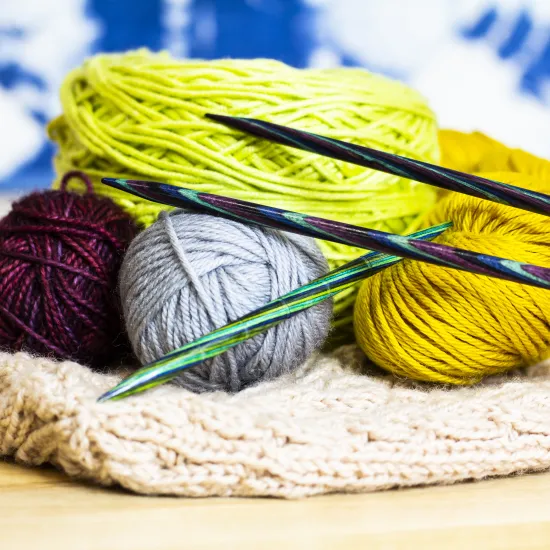- Sunday, November 12, 2023
Dinner Table Talks create the opportunity for families to have important conversations centered around books. These discussions will build our capacity for talking about race and define our roles in fighting against both every day and systemic racism.
In Veera Hiranandani's How to Find What You're Not Looking For, Ariel Goldberg loves her family, especially her older sister, Leah. While there is adoration for her family, Ariel quickly finds her life spiraling when her family's Jewish bakery begins to have financial hardship and her sister elopes with a college student from India, Raj. The couple's parents show their disapproval.
Dysgraphia Life reached out to Newbery-Honor winning author Veera Hiranandani to learn more about her new book and her motivation to have her main character struggle with dysgraphia, all while facing social and political unrest that is affecting her own family. In the video, Veera explains how the book is shaped by her life experiences. You can find Veera's book here: How to Find What You're Not Looking For
Guidelines for Discussion
- Be open and honest--even when it's hard.
- Understand your own prejudice and bias.
- Embrace other cultures or races by reading books, watching movies and going to community events.
- Celebrate yourself and your own cultural identity.
- Don't shy away from conversations about race. Talking is how you build capacity for anti-racism.
- Acknowledge your mistakes and learn from them.
- It's okay not to know the answer. Look for it together.
Adapted from the Embrace Race and MomsRisings' 10 Tips for Teaching and Talking to Kids About Race and Richland Library's Let's Talk Race team
Questions for Conversation
- After reading or listening to the book, what scene or character was your favorite?
- Why do you think Leah was afraid to tell her parents about her relationship with Raj?
- What do you think about how Leah and Ariel’s parents react to meeting Raj and learning about her relationship? Did your opinion change after you learned their reasons for their reaction?
- Ariel struggles with writing. Her parents say that she needs to try harder and not be lazy. Because of Miss Field, Ariel learns that she isn’t lazy. Instead, she has a learning difference—disgraphia. How do you think her parents’ words impact Ariel? How do you think she feels after learning about disgraphia?
- Ariel and her family are Jewish. Who do you know in your life that is Jewish and/or what do you know about Judaism?
- After Leah leaves, Ariel feels alone. She makes stronger connections with her classmate, Jane and Peggy, her mother. She also seeks the help of her former babysitter, Gabby, who works in the bakery. Who would you lean on when you’re feeling alone or experiencing a hard time?
- Secrets play an important role in this story. The secret Leah keeps from her parents. The secrets Ariel’s parents keep from her. Why do you think the characters keep secrets from one another? What do you think about what Ariel says to her father on Rosh Hashanah: “I think most things are easier if you do talk about them.” ?
- Ariel thinks about words like “smart” and “pretty” and wonders if there’s more than one way to be these ideas. What do you think?
- Ariel also encounters anti-Semitism at school from her classmate, Chris. Despite his behavior and his remarks, Ariel still has empathy for what he is experiencing. Have you ever seen any examples of anti-Semitism—either in person or in the news? What do you think about Ariel’s attitude towards Chris?
- Ariel and her family are living during a time when there’s a lot of positive change—the Loving Decision for example. However, there’s also a lot of difficult events like the assassination of Dr. Martin Luther King, Jr. What do you think it feels like to live during this time in the 1960s? How do you think it compares to now?
- Why do you think the author called the book How to Find What You’re Not Looking For? What did the characters find that they weren’t looking for?
- Music can define moments in our life. The Beatles’ Sgt. Peppers Lonely Hearts Club Band album appears several times in the novel. Listen to Getting Better. What do you think about this song? How do you think it connects to the characters at the end of the story?
Poetry Writing Activity
"It's still so new, writing poetry, but it's become a way to feel better, a way to feel free. It's like finding something buried in the ground, thinking it's a rock, then realizing it's gold" (162).
Ariel discovered her love for poetry and used it to help manage her feelings during a difficult period in her life. Watch the video below of author Veera Hiranandani explaining a poetry writing activity prompt for you to try!
Author of THE NIGHT DIARY, Veera Hiranandani introduces her new book HOW TO FIND WHAT YOU'RE NOT LOOKING FOR and gives students a poetry writing activity prompt.
Ariel's first poem.
The Sound of Summer
My summer sounded like
the moment after
the last guest leaves the party.
Want to continue the conversation? Need more resources about race?
Take a look at the booklists below to learn more about multiracial families and their stories:
- Read All About It: Multiracial Families in Picture Books
- Read All About It: Multiracial Families in Middle Grade Novels
Learn more about Richard and Mildred Loving: #OwnVoices: The Case for Loving: The Fight for Interracial Marriage
Learn about the landmark Supreme Court decision in Loving v. Virginia, which legalized interracial marriage in the United States.
Also, check out our Understanding Race, Equity and Inclusion resource for more books, podcasts, events and information.


